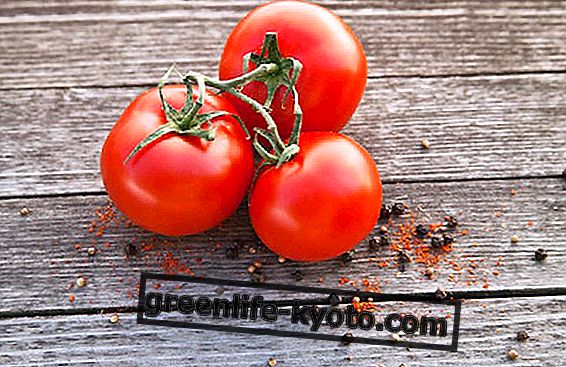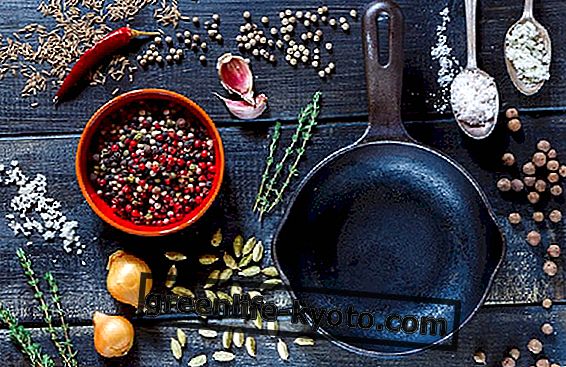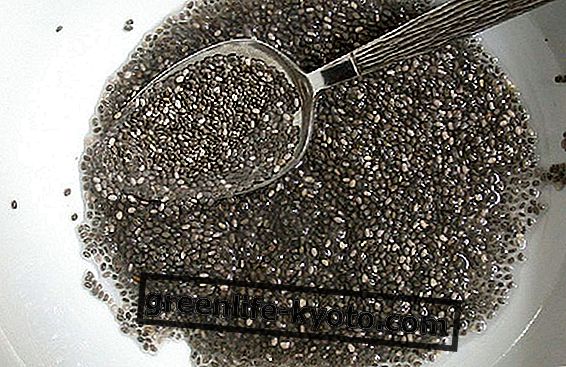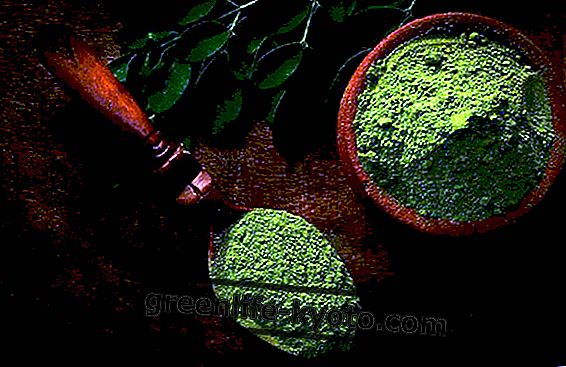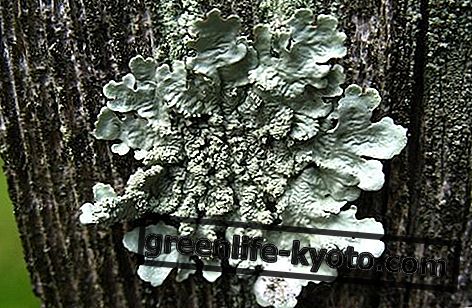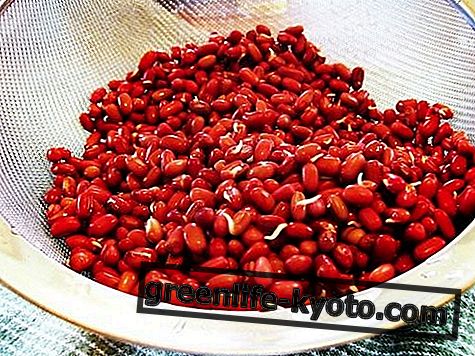
Coconut oil is a vegetable oil that is obtained from the nuts of the coconut palm typical of tropical areas. The seed is composed of a more external fibrous shell that contains a very hard woody shell inside which is the pulp ( copra ), white, fleshy and tasty, rich in fat, which forms a cavity containing a sweet and refreshing milky liquid, said " coconut milk ". This pulp, more or less dried, is the raw material for the preparation of the oil, since it contains about 65% of fat.
Coconut oil is in the liquid state at a temperature of about 24 ° C, while its solidification point is around 15-20 ° C; consequently, it appears as an oil in warmer climates and as a butter in the colder ones.
In the market there is also hydrogenated coconut oil, with a higher melting point, which remains solid even at temperatures slightly above 30 ° C. Coconut oil (or butter), extracted from copra by cold pressing, is used, as a condiment in ethnic cuisine and in natural cosmetics, for the elasticizing, emollient and nourishing action it exerts on the skin. Before drying the coconut pulp contains about 35% of fat and 10% of sugar, at the end, however, the percentage of fat rises and fluctuates between 63 and 70%.
Properties and benefits of coconut oil
Coconut oil contains triglycerides and a small percentage of carbohydrates . The mainly present fatty acids are lauric, myristic, caproic, oleic, palmitic and stearic . The peculiarity of its composition lies in the high presence of saturated fatty acids and a rather low unsaturated fatty acid content for a product of vegetable origin. Despite being rich in saturated fatty acids, coconut oil does not adversely affect cholesterol levels, precisely because it is low in saturated long-chain fatty acids such as palmitic acid.
Internal use: coconut oil is widely used in the food industry as a frying oil, in the preparation of bakery products and as a base for butter and vegetable margarine.
Body: applied to the epidermis it exerts a soothing and emollient action, coconut oil gives elasticity and tone to dry, scaled skin. This vegetable oil can be used for the preparation of butters for the body or combined with natural detergents to make them more nutritious. Furthermore, coconut oil contains about 50% lauric acid, a saturated fatty acid with marked antiviral, antimicrobial and antifungal properties used in cosmetic preparations in which the presence of natural substances with an antibiotic action is required . Used after sun exposure or tanning lamps, it performs an excellent restorative and nourishing action .
Hair: to make compresses before shampooing with coconut oil delays the graying (white hair), nourishes and polishes the stem, increasing the volume of the hair and enhancing its shine.
Like coconut oil, apricot oil is also used in natural cosmetics: find out how!
Description of the plant
Cocos nucifera - Arecaceae
Native to the Indonesian archipelago, it spread in ancient times throughout the Pacific area, with numerous varieties (some with a dwarf habit) that differ in color, size and shape of the fruit. The Europeans (Portuguese and Spanish) discovered the coconut exploring the western coasts of central and southern America, and from 1525 they began to cultivate it spreading it also on the eastern coasts.
The coconut tree is very long-lived (it can reach over 100 years old) and large (40 meters high, with a base diameter of 50-70 cm and a bark marked by the annular scars of the old leaves) ; at the apex it ends with a crown of large leaves (they are 4-6 meters long and composed of lanceolate leaflets, erected in the first two years of life and subsequently falling, of a bright green color); the inflorescences are born from the axil of the leaves and are yellow.
The fruits are voluminous drupes, commonly known as coconuts, of about 1 kg of weight, which are formed after 2 weeks from flowering, and grow rapidly for about 6 months. They have a smooth and thin exocarp, generally reddish-brown in color, fibrous and light mesocarp at maturity, which is closely joined to the endocarp (shell) woody and very hard, and which presents at the base 3 pores of lesser thickness clearly visible, also called "eyes" . The shell is closely adherent to the integument of the enclosing seed.
Coconut oil among natural hair products
Coconut oil, an excellent after-sun
We come to use coconut oil as an after-sun. The sun and the saltiness dehydrate the skin which, on returning from vacation, may appear dry, dry and aged. To prevent dryness of the skin and keep the skin healthy, soft and young, we can use coconut oil, with an emollient and nourishing action and rich in antioxidant vitamins.
We can use pure coconut oil on the skin every night after the shower or use coconut oil together with other vegetable oils and essential oils to prepare an anti-aging after-sun product suitable for all skin types.
Ingredients
> 30 grams of coconut oil
> 20 grams of calendula oil
> 10 drops of carrot essential oil
Method
Mix the marigold oil and coconut oil together: if the coconut oil is solid due to the temperature, help yourself with a spatula. Add the essential carrot oil and stir again. Transfer the mixture to a clean, dry jar and store in a cool, dark place. Apply a small amount of product on clean skin every day: it would be ideal to start the applications before leaving for the holidays and continue during and after the days at sea.
